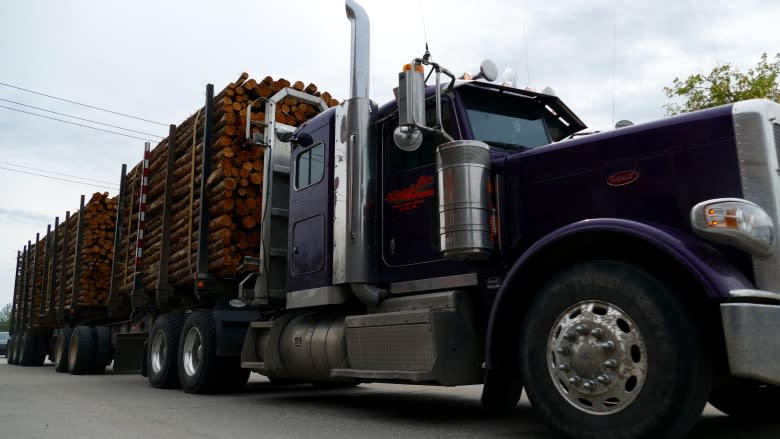Tolko Industries: Why they're closing The Pas mill and what it means
For the third time in less than a month, northern towns are facing tough times after a major employer announced it will close its doors.
On Aug. 22, 2016, Tolko Industries announced that as of Dec. 3, 332 employees in The Pas will be without jobs.
The privately owned B.C.-based forestry products company is set to close the town's kraft paper mill, which it has been operating for the past 19 years. The mill has been operating for more than 40 years and is the largest employer in the northern Manitoba town.
What is Tolko Industries?
Tolko started as a single sawmill near Vernon, B.C., in 1956. The third generation of the Thorlakson family is now running the company, which has more than a dozen lumber mills, plywood/veneer plants, oriented strand board facilities and the Manitoba kraft paper operation. Tolko has more than 3,000 employees across all its operations. The mill in The Pas has a management licence for 22 million acres of woodlands.
What do they make?
The mill in The Pas manufacturers kraft paper, used primarily for cement sacks. The high-strength and porous packaging paper is also used for flour, sugar, seed, potatoes and other agricultural purposes. The Manitoba operations have an annual capacity of 170,000 tonnes of kraft paper. An idled sawmill has an annual capacity of 160 million board feet of lumber.
How big is the mill in The Pas?
In 2014, the company shipped about 164,000 tonnes of paper, 15 per cent within Canada, 33 per cent to the U.S., 18 per cent to Mexico and 34 per cent to other markets.
How long has Tolko been operating the mill?
Tolko purchased the mill in The Pas in 1997 for a reported $47 million. Previously it had been sold for $132 million in 1989. Both levels of government have invested millions in the mill over the years, including $13.4 million in 2012 under the Green Transformation Program aimed to reduce steam costs.
Why is it closing?
The company said it has been working for years to improve the cost structure of the mill, but escalating expenses mean they can't keep their product prices competitive with producers in other regions that don't face the same expenses.
One of the larger expenses the company cites is energy use. The company said from 2000 to 2013, natural gas has become a significantly cheaper source of energy than the Bunker C and waste oil it uses to power parts of the mill operation.
Outbound freight expenses accounted for 15 per cent of the total costs of their delivered paper products. The company also explained that raw material costs are one-third of the total manufacturing cost, and the company faced extra expenses for raw material because they had to transport fibre over long distances due to forest land use and stewardship constraints.
In a document submitted by the company to the Public Utilities Board during a hydro rate increase application from Manitoba Hydro in 2015, the company said transportation in the region is a large concern.
"Costs are also under pressure due to transportation inefficiencies with constrained truck design and load limits on the roads. Rail supply of logs is also hampered by poor infrastructure, which limits train speed."
The kraft paper mill is also a single-line-scale facility. Typically, mills with similar products have more production lines and larger facilities making multiple products, which gives them an increased ability to recoup investment costs from higher product output levels.
What is the impact of the impending closure?
In the same report, the company said the payroll for the mill was approximately $37 million. On top of the 332 employees who are directly employed by Tolko, an additional 250 individuals are subcontracted to provide services and work in the woodlands managed by Tolko.




